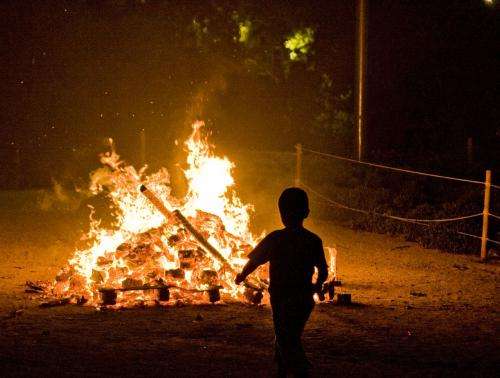Child burn effects far reaching for parents

Parents of burn victims experience significant psychological distress for at least three months after the incident and may compromise the post-operative recovery of their child, WA research has found.
A study of 46 mothers and 17 fathers of burned children at Princess Margaret Hospital by researchers from WA universities found one in five parents had significant symptoms of post-traumatic stress disorder, one in four had above-average levels of anxiety, and depression and stress were 14 and 17 per cent above average. Parents also had lower levels of resilience.
Those who witnessed the event, felt helpless about the situation or had a past trauma were more likely to suffer psychological distress.
An accompanying qualitative study of 21 parents found most parents still felt the effects at least three months later and many experienced feelings of guilt, anger, or blamed other parties during treatment and had sleep disturbances or were overprotective and hyper cautious after returning home with their child.
ECU senior occupational therapist Sarah McGarry says medical procedures such as dressing changes were particularly traumatic for parents.
"They're seeing their child in pain, often accompanied by feelings of guilt," she says.
Parents reported feeling nauseous throughout the procedures and some were still reliving it up to six months later.
The researchers found the parent's distress could affect their decision making and the post-operative care of the child.
"This is a critical time for medical staff to communicate important information to parents regarding their child's health and medical treatments," they wrote.
"Psychological symptoms may impact on the functioning of parents in many ways including their ability to absorb information from health professionals about the aftercare of their child."
Dr McGarry says there is a strong link between the parent's and child's level of psychological stress.
"If the parents are more or less resilient, that will be reflected in their children in the form of behavioural changes, anxiety and PTSD," she says.
The study found parents fared better the more information and support they had, and that many parents were not adequately prepared for the experience and that lack of transparency about treatment was a major source of stress and anxiety.
Dr McGarry says parents need to be given information about dealing with their emotions, how to deal with guilt, how to talk to rest of the family about it later, and be prepared before they see treatments and learn how to comfort child during it.
She says social and therapeutic support is essential and recommends hospitals target at-risk parents for intervention.
More information: Paediatric medical trauma: The impact on parents of burn survivors Sarah McGarry, Sonya Girdler, Ann McDonald, Jane Valentine, Fiona Wood, Catherine Elliott. Burns - September 2013 Vol. 39, Issue 6, Pages 1114-1121, DOI: 10.1016/j.burns.2013.01.009

















